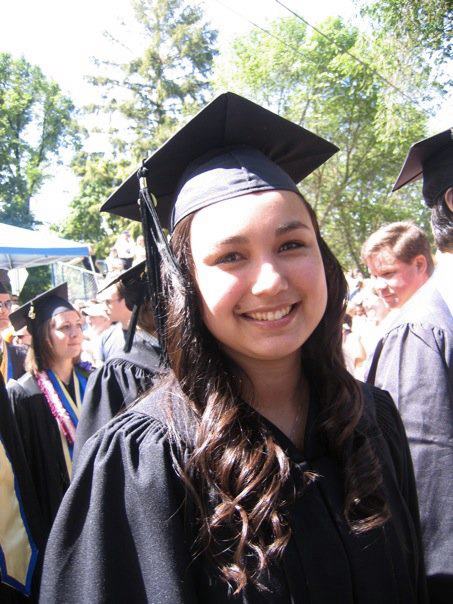Alana Kaholokula
Uprep English Teacher
Biography:
Whitman College: BA, English
Brown University: MA in Teaching, Secondary English Education
- Previously taught at Oregon Episcopal School
Background: Alana taught two of my English classes: Homegoing and Hyphenating America. Both dealt with themes cultural and individual identity, as well as colonization. They helped me improve as a writer and a critical thinker. I was excited to learn more abou Alana’s personal story, and the impetus behind her teaching.
You’ve shared some interesting personal stories during class, and you seem to bring a unique perspective to Uprep. Can you tell me a bit about your background? Where are you and your family from?
I was born and raised in Hawai’i, specifically on the island of Kaua’i. My Dad grew up in Hawai’i, but my mom is originally from Michigan. Her great grandparents immigrated from—well, we always say Russia, but it might now be the Ukraine. My mom’s whole side of the family are Ashkenazi Jews, and they fled the “old country” to make a better life and escape religious persecution.
I affectionately refer to my mom is a crunchy-granola hippie. Her parents were a very strait-laced suburban couple, which was a hilarious contrast, but made for some conflict, as I’m sure you can imagine. When my mom was in her early 20s, she moved to California, and then eventually to the island of Kaua’i, Hawai’i. She was in her early 30s, working as a bartender, when she met my dad.
My dad was born on O’ahu, another island in Hawai’i. His mother was the daughter of Japanese immigrants who came to Hawai’i as migrant workers. She grew up speaking Japanese and was very culturally Japanese. My dad’s father, on the other hand, grew up in a very traditional Hawaiian family. He was not raised by his biological parents. We don’t know all the details exactly, though there’s a lot of family lore around it. From what I’ve been able to piece together, his birth mother died and left him to one of her siblings, who also died. He was then taken in by another sibling, who raised him and gave him their last name — Kaholokula. The funny thing is that if he had stayed with that first sibling, my last name would be Baker.
How did living in Hawai’i with this kind of family set up impact you?
My dad’s side of the family was very closed off and did not like talking about the past, but I grew up seeing all these interesting tidbits from his life. For example, Hawai’i went through so much growth while he was growing up. He was born in 1950, back when Hawai’i was still a U.S. territory and only a handful of years after World War II. Most of the infrastructure we have now—which is still lacking compared to the other States—was built in his lifetime. Many of the habits he had from a childhood where food safety and regulations weren’t yet part of daily life carried on long into his adulthood, and into my life. One habit that stands out in my memory is that he used to flip cans over to open them from the bottom side. You see, back then, and even to this day, food was shipped from the mainland in big freighters. However, when he was a kid, there were fewer safety concerns around the storage of food on those freighters, and they were frequently home to large rat populations. Concerned about rat poop on the tops of cans, my dad and his family learned to rinse off cans and open then from the protected bottoms. So, while Hawai’i doesn’t have food safety concerns like that today, those left-over habits were still present in my life.
I spent my whole childhood largely isolated on that rock in the middle of the ocean. In fact, by the time I went to college, the longest I had been away from Hawai’i at any given time was only three weeks—and that happened the summer after high school.
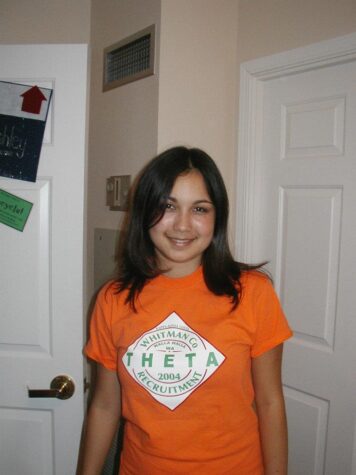
In your class Hyphenating America, we briefly discussed the education system in Hawai’i—how it can be a tool for empowerment and economic mobility, and at the same time an extension of American colonialism and cultural influence. Can you tell me about your experience with education? Why did you decide to become a teacher?
I’ve actually written college essays about this because my story in education is fairly unique.
After a questionable Waldorf preschool, I had a wonderful kindergarten and first grade experience in a public school with a teacher who was very sensitive to the students’ needs. She let us move up reading levels and pulled second grade work for me and a handful of others. She met us where we were. But my second-grade teacher was the opposite — very strict, wanted to stick to the curriculum to the point of assigning me busy work on things I already knew simply because it was at the second-grade level. She knew I was bored, and instead of giving me harder work, she used me as her teacher’s aide. She had me take things to the office, prepare supplies, explain concepts to my classmates, and even grade homework. In retrospect, I realize making me her unofficial teacher’s aide was very unprofessional, but the experience made me realize I was good at teaching other kids. I thought, “maybe I could do this, maybe I could be a teacher.” It was the first time I really considered that path seriously. And yes, I was 7.
After that year, my mom and I decided I should be homeschooled. The final straw for me was when some kid wrote something offensive on the blackboard, and my teacher punished the entire class for two months. I homeschooled from third grade to ninth grade.
Once I hit ninth grade, homeschooling became too difficult for my mom. (Algebra is hard.) She also refused to send me back to public school, partly because of my experience in second grade, but also due to the fact that Hawai’i’s public schools had (and I think still have) the lowest rating in the country. My half-brother had gone to the local public middle school and got sucked into drugs and fighting. There were also high rates of teen pregnancy—all manner of things that my mom didn’t want me anywhere close to. Since my grandparents offered to pay for private school, I attended a tiny private school from 10th through 12th grade. I graduated in class of 24, the 6th high school class to graduate from the institution. Just for some perspective, that year the entire high school only had 84 people in it in total.
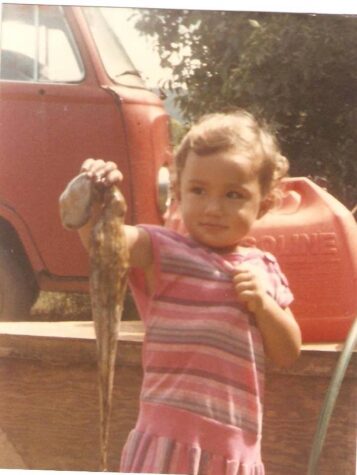
You mentioned earlier that you spent most of your childhood in Hawai’i. Why did you decide to leave for college?
There’s only one college on Kaua’i—a small community college that only does two-year degrees. (It’s also literally next door to my high school.) There are other schools on O’ahu, but to be frank, I really wanted out of Hawai’i. It was small, there was limited opportunity, and I didn’t feel like I would be happy there. If I went to college in the islands, I thought I would never leave. And that’s not the future I wanted for myself.
I looked to the West Coast for college (close, but not too close to home) and ended up at Whitman College in Walla Walla, WA. It was the best decision I ever made for myself. It gave me the independence, the education, and the support that I needed to figure out who I wanted to be and what I wanted out of my life.
What was your education like after college? Why did you decide to teach English?
I decided to become an English teacher when I was in high school. I knew that I wanted to go into the humanities, and it was between history and English. As a student, I was probably more interested in history (especially after I got to college and saw what the study of history really was), but I felt the English route would be more interesting long term. The way my high school taught history, we mostly just memorized dates, and I thought, that’s going to get boring if it’s my whole career. The war of 1812 happened in 1812—you’re not going to change that. In college I majored in English Lit, but double-minored in education and history, with concentrations in American and European history. If you take my elective classes at UPrep, you’ll find a lot of bleeding of history into English.
After undergrad I went directly into a grad program at Brown. It was probably the least academically fulfilling of all my college level choices – the most parroting back of professors and other students skipping class I had ever experienced. At Whitman, and even at my high school, we had been taught how to think critically, question, and use those skills for our own ends. My experience at Brown saw more of my peers and professors viewing admission the goal and memorization the method. However, through my program, I got to teach at a local Quaker school – the Moses Brown School. That experience shaped me into who I am as a teacher. The framing of their teaching and learning really shaped my philosophy around education.
Why did the Quaker philosophy speak to you?
Well, at least from what I understand of it, the Quaker religion focuses on the notion that each human has an innate understanding about God. Quaker schools take that idea and parlay it to the way they treat students and community members. We all have some innate understanding about the world. We all have innate understandings, and we just need to learn the skills to help us access and use them. This was very in line with my own philosophy, because for me, educating students means helping them develop their own critical thinking skills. Not teaching them what to think, but how to think. We need to teach the next generation skills for a job that doesn’t yet exist, and skills to be functional citizens in a society that doesn’t yet exist.
The next school I taught at, an Episcopal School, was a little different. There was more of an idea that there is a right and wrong way to do things. However, the principle behind the core of their philosophy was still about the common good. There was an idea that those of us with privilege have a duty to use our power for good in the world. (That was actually part of their school mission.) You can’t just be thinking of getting A’s. What does the A even mean? It’s just a note that reflects that you are doing all you can to educate yourself in a particular system. At the same time, you should be being a great community member and supporting people around you. Only together can we succeed.
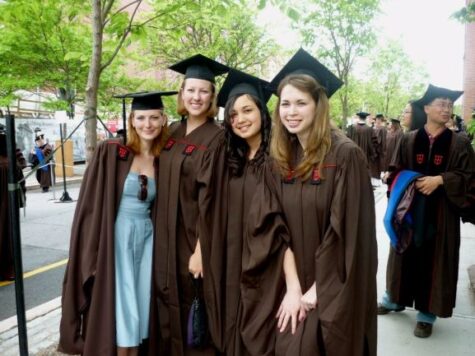
As an English student, I’ve always wondered this: what’s the point of analytical writing? How does it matter in our lives, beyond just getting the “A” in English class?
It’s meant to strengthen your critical thinking skills. You learn to consider other people’s opinions and create your own. To create a point of view that’s evidence based, rather than just saying: “I feel this way, therefore it is true.” It’s a skill we really need in the world right now.
Once you’ve learned how to write a formal essay, you can use those analytical skills in other mediums. That’s why I give my elective classes so many choices around the type of projects that they do. For example, the hybrid essay option—where students mix critical analysis of the text with and exploration of their own life experiences—Is more in line with what actual literary scholars do. More recently I added an option for students to make short documentaries. Some students are really anxious about standing up in front of people and speaking, but they can put together a really cool documentary. Learning to transfer the skills to the real world is the important part.
One of your classes, Homegoing, opened my eyes to the ways education can be used to perpetuate harmful systems such as colonialism. In the novel Homegoing, we see formal education used to spread European influence and suppress local religions and cultures. As an educator—especially an English educator who grew up in Hawai’i—how do you grapple with that paradox?
Hawai’i is a colonized state. I grew up needing to accept that fact. People protest it—there’s an indigenous movement, people who want to take back control—but in my opinion, that’s never going to happen. The United States might say “sorry” for the way that they took over, but they’re never going to just hand it back. Hawai’i is so intrinsically entwined with the United States’ power system that at this point there would be no way to untangle it. At least no way that the U.S. government is going to accept.
So, what do we do? A lot of people in my generation say, “we’re going to take the power systems that they gave us and use it to our betterment.” That’s how I look at it. The colonizers have given education—a communication system—to people who have long histories of storytelling. You think we’re not going to use it to overthrow you? I mean, it may not be a fiery revolution, but stories, and education, are the ways through which we teach our young – our keiki, in Hawaiian. We might never have the Kingdom of Hawai’i back in its former glory, but what can we do with the language our colonizers have given us to empower a new version of the future?
The way I see it, you have to be aware of the world’s current power systems and do what you can to hold up the people who have less power. That’s why I teach classes like Hyphenating America and Homegoing. I want to make my students of color feel seen in the curriculum, and I want to show the white students what they wouldn’t see if they only read stories by and about people who look like them. By the time your generation is in power, maybe enough of you will be exposed to these ideas that you will have momentum to do something about it.
I hope by the time I retire I can look back and see that I had a very small part of this larger social change. And if that ultimately helps disrupt the colonialist education that we live with in the United States, then I’ll feel like I’ve won.
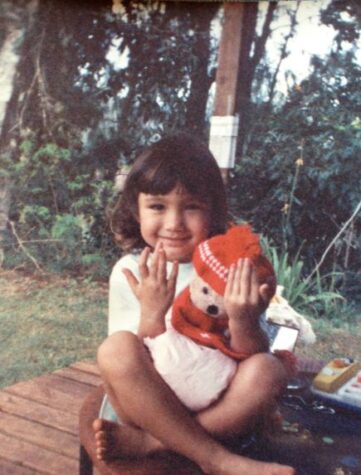
Your donation will support the student journalists of UPrep.

